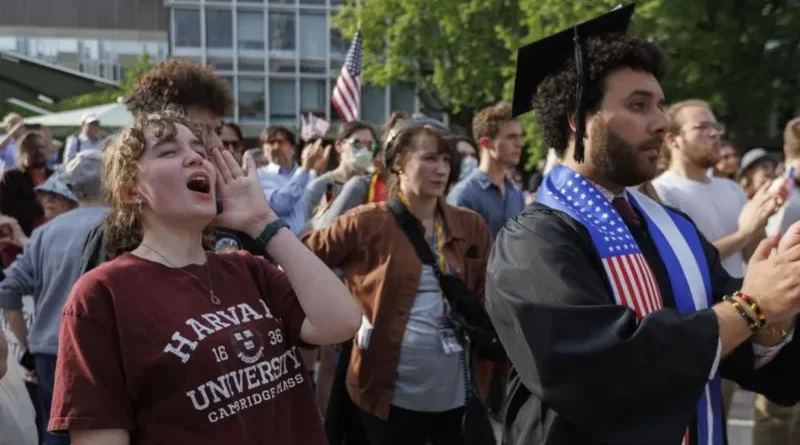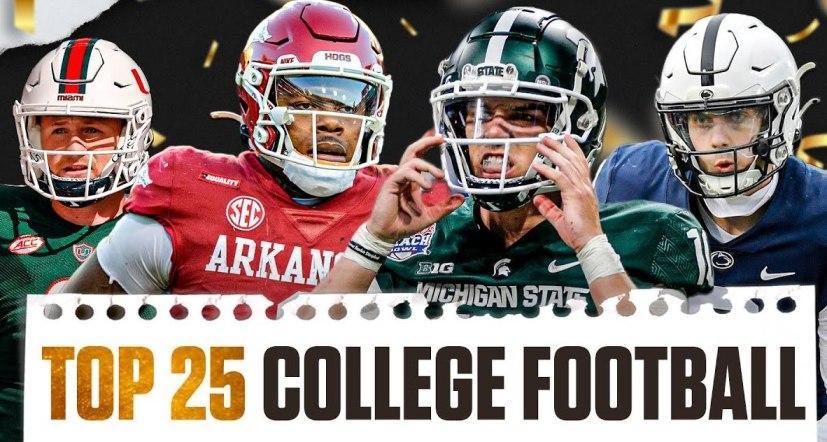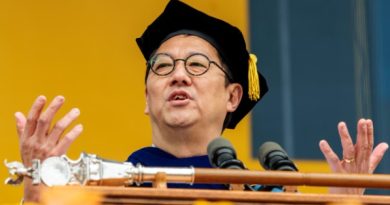U.S. Pauses International Students Visa Interviews with New Social Media Rules
In a significant shift in U.S. immigration policy, the Trump administration has ordered all U.S. embassies and consulates worldwide to suspend scheduling new appointments for student and exchange visitor visas (F, M, and J categories). This pause is in preparation for the expansion of mandatory social media screening for all applicants.
According to recent updates, all interviews for international students seeking to study in the USA will be temporarily halted. The visa application process will resume only after a thorough review of applicants’ social media profiles. Many student advisors had anticipated this change and were already advising students to avoid posting hate speech or any inappropriate content on their social media accounts. Surprisingly, this social media screening practice existed informally before, but the major change is that it has now been officially incorporated into the visa policy.
Key Developments:
- Visa Appointment Suspension: Effective immediately, U.S. embassies have been instructed to remove unfilled student visa appointments from their calendars. Existing appointments will proceed as scheduled.
- Enhanced Social Media Vetting: The State Department plans to implement expanded social media screening protocols for all student visa applicants. Details on the specific criteria for this vetting have not been disclosed.
- Political Context: This policy change aligns with broader actions by the administration targeting universities perceived as promoting pro-Palestinian activism. Measures have included revoking visas and freezing federal funding for institutions like Harvard University.
- International Response: The Chinese government has expressed concern, urging the U.S. to protect the rights of international students, including the substantial number of Chinese nationals studying in the U.S.
Impact on International Students and U.S. Universities:
The suspension of visa appointments and the introduction of expanded social media vetting are expected to have significant implications:
- Application Delays: Prospective international students may face delays in obtaining visas, potentially affecting enrollment timelines.
- Increased Scrutiny: Applicants’ social media activities will undergo heightened examination, raising privacy and free speech concerns.
- University Funding: U.S. universities, which rely on international student tuition, may experience financial strain due to decreased international enrollment.
- Legal Challenges: Civil rights groups and educational institutions are preparing to challenge these measures, citing potential violations of constitutional rights.
Additional Guidelines for International Students and Scholarship Applicants
All international agencies and scholarship organizations use social media screening as part of their candidate shortlisting process. Therefore, even if the current policy is reversed, international students and applicants for fully funded scholarships in any country should carefully manage their social media presence.
If you are aiming for immediate admission and scholarships, it is crucial to avoid hate speech and careless behavior on social media platforms. The most important factors for selection are your communication and leadership skills. Be sure to highlight these qualities in your online profiles. Regularly post about your achievements and community involvement, as international universities value applicants who actively participate in community welfare activities. Those demonstrating exceptional leadership skills are often given top priority.
Additionally, your social media profiles should clearly reflect your genuine interest and passion for your chosen field of study and program. Consistently share updates about the latest advancements and developments in your area of expertise. Try to communicate these topics in an easy-to-understand manner to engage a broader audience. Building an online community and playing a positive role in community development will strengthen your profile further.
By following these guidelines, you will improve your chances of securing admission and scholarships at international universities, especially those in the USA.
All new student visa appointments have been suspended until further notice. Existing appointments will proceed as scheduled.
The suspension applies to F (academic students), M (vocational students), and J (exchange visitors) visa categories.
Applicants’ social media profiles will be reviewed as part of the visa application process. Specific criteria for evaluation have not been publicly detailed.
No specific timeline has been provided. The suspension will remain in place until further guidance is issued by the State Department.
Current students are not directly affected by the suspension but may be subject to increased scrutiny under the expanded vetting procedures.
As of now, this policy is specific to the United States. Other countries have not announced comparable measures.
Universities may face decreased international enrollment, impacting diversity and financial resources.
Many express concern over the uncertainty and potential delays in their educational plans.
Currently, no expedited processes have been announced. Applicants are advised to monitor official channels for updates.
For further information and updates, please refer to official U.S. Department of State communications and consult with your educational institution’s international student office.



